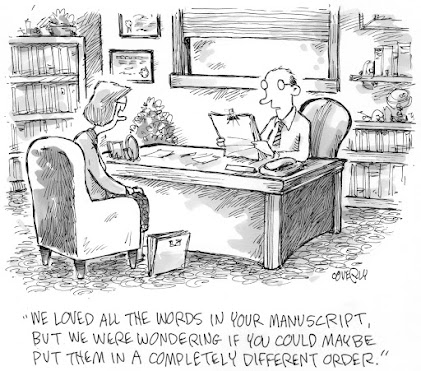Words, Words, Words
Words are a writer's raw material, but it's how those words are put together that makes a difference. They must make logical sense, obviously, and lead the reader's thoughts to a conclusion. But words can also sing, and that has to do with rhythm. I'm thinking of words and the rhythm of the English language now as I'm finishing an e-book novella to be published in 2023. And since I have an October 1st deadline, I'm sharing one of my posts from July of 2019.
When the Words Sing
We've all had the
experience of reading along in a book when suddenly an exquisite sentence or passage
zings in your brain and grabs you by the heart. Some passages are beautiful
because of the images they conjure; others because of their lyricism. The best
combine both qualities. Here's one of my favorites:
Miss Bellringer settled herself in the chair
that Sergeant Troy drew forward and rearranged her draperies. She was a
wondrous sight, festooned rather than dressed. All her clothes had a dim but
vibrant sheen as if they had once, long ago, been richly embroidered. She wore
several very beautiful rings, the gems dulled by dirt. Her nails were dirty
too. Her eyes moved all the time, glittering in a brown seamed face. She looked
like a tattered eagle.
—The Killings at Badger's Drift by
Caroline Graham
Did you notice how Graham varies the
pace and length of her sentences, ending on that wonderful six-word statement to
deliver the final image? The rhythm and pace of language create an atmosphere.
Long, smooth sentences slow the mood down. Short, punchy sentences speed things
up. Here's another example. Notice how the author uses rhythm, the ebb and flow
of language, to create an atmosphere.
When she opens the bedroom window, the noise
of the airplanes becomes louder. Otherwise, the night is dreadfully silent: no
engines, no voices, no clatter. No sirens. No footfalls on the cobbles. Not
even gulls. Just a high tide, one block away and six stories below, lapping at
the base of the city walls.
And something else.
Something rattling softly, very close.
—All the Light We Cannot See by Anthony Doerr
Language Has a Natural Rhythm
The rhythm of language is part of what
writers call voice.
The English language has its own natural rhythm.
So does every language, which is partly why I love German with those long, drawn-out
sentences that clackity-clackity-clackity to the end. The most important part
of writing dialect isn't getting the words right so much as getting the rhythm
right.
One of my
professors in graduate school, an expert in seventeenth-century English poetry,
claimed that the natural rhythm of English is iambic pentameter—the language of
poetry, the language of song. Years ago I read that the most beautiful
sentence ever written in English comes from the King James Bible, the book of
Isaiah, chapter 6, verse 1: "In the year that
King Uzziah died, I saw the Lord sitting on a throne, high and lifted up, and
the train of His robe filled
the temple." (NKJV) The most beautiful anything (baby, flower, sunset,
landscape) is obviously a matter of personal taste, but that sentence sings to
me.
I was fascinated
to read an article (a bit technical) on the rhythm of language in the latest
issue of Writers Digest magazine ("Poetic
Thinking: Writing in Rhythm" by Barbara Baig. September 2019). When I have
time, I plan to read the article again. But most of us—writers and readers—know
lovely writing by ear. When the words sing to us.
Do you
have a favorite sentence or passage that sings to you? How do you use rhythm in
your writing?


Lovely post, Connie. Rhythm is so intuitive. One of the best things I learned to do is to read my manuscript aloud to myself. It has really helped me hear the language flow (or not flow, as the case may be...)
ReplyDeleteLovely images, Connie! My favorite has to be the start of Daphne DuMaurier's Rebecca. 'Last night I dreamt I went to Manderley again.' Puts me right in the scene and ready for the story.
ReplyDeleteLori, I have Word read to me so I can hear the language that is there, not what I expect. It makes a huge difference, but in flow and in catching those out of place words.
I love this post, Connie. I don't have any one, single favorite line or passage, but all my favorites feel as thought they should be read aloud. Here's one of my favorite passages. This is from Jasper Fforde's Thursday Next, First Among Sequels:
ReplyDelete“I took a deep breath. 'The point is, ladies and gentlemen, that we’re not in the book industry. This isn’t a publishing meeting with sales targets, goals, market research and focus groups. The book may be a delivery medium, but what we’re actually peddling here is story. Humans like stories. Humans need stories. Stories are good. Stories work. Story clarifies and captures the essence of the human spirit. Story, in all its forms – of life, of lore, of knowledge – has traced the upward surge of mankind. And story, you mark my words, will be with the last human to draw breath . . .'”
And I absolutely love that New Yorker cartoon!
ReplyDeleteSuch a worthwhile blog post, Connie. Words are what we have to work with. I always listen to the cadence of each sentence in my head. To me, it's as important as the meaning its expressing.
ReplyDeleteNice post, Connie. I've heard the same thing about iambic pentameter. My poet friends who also write prose always have beautiful passages.
ReplyDelete